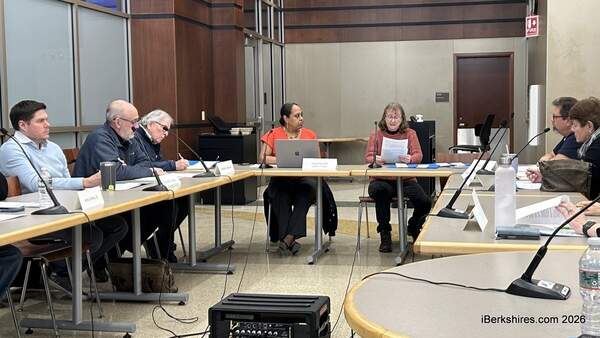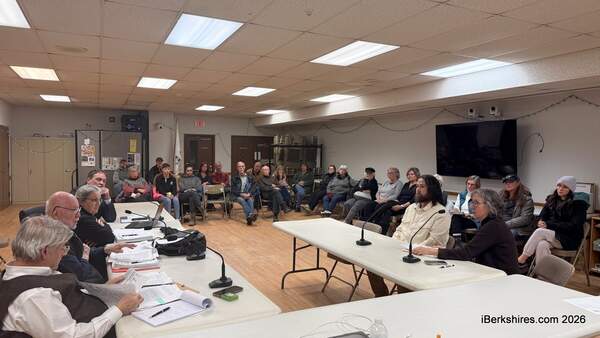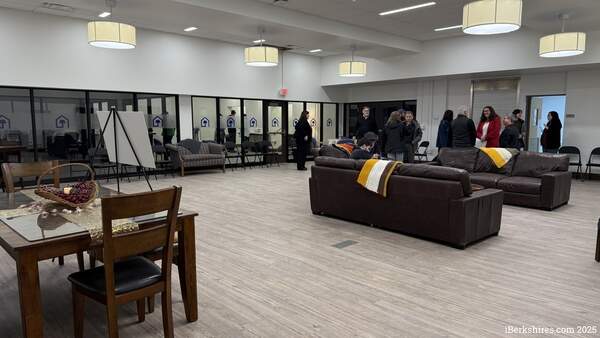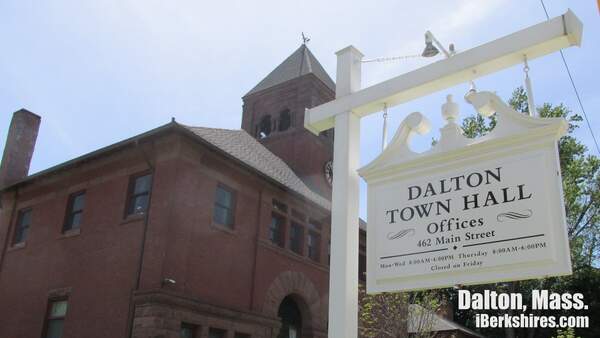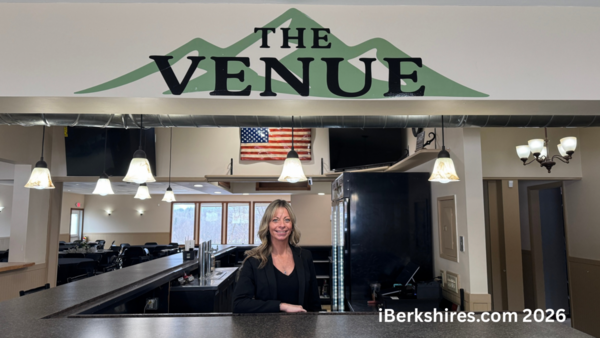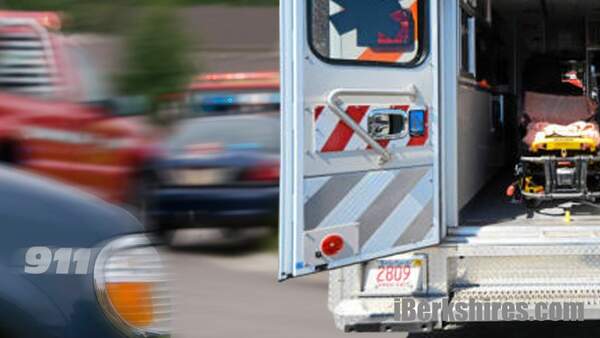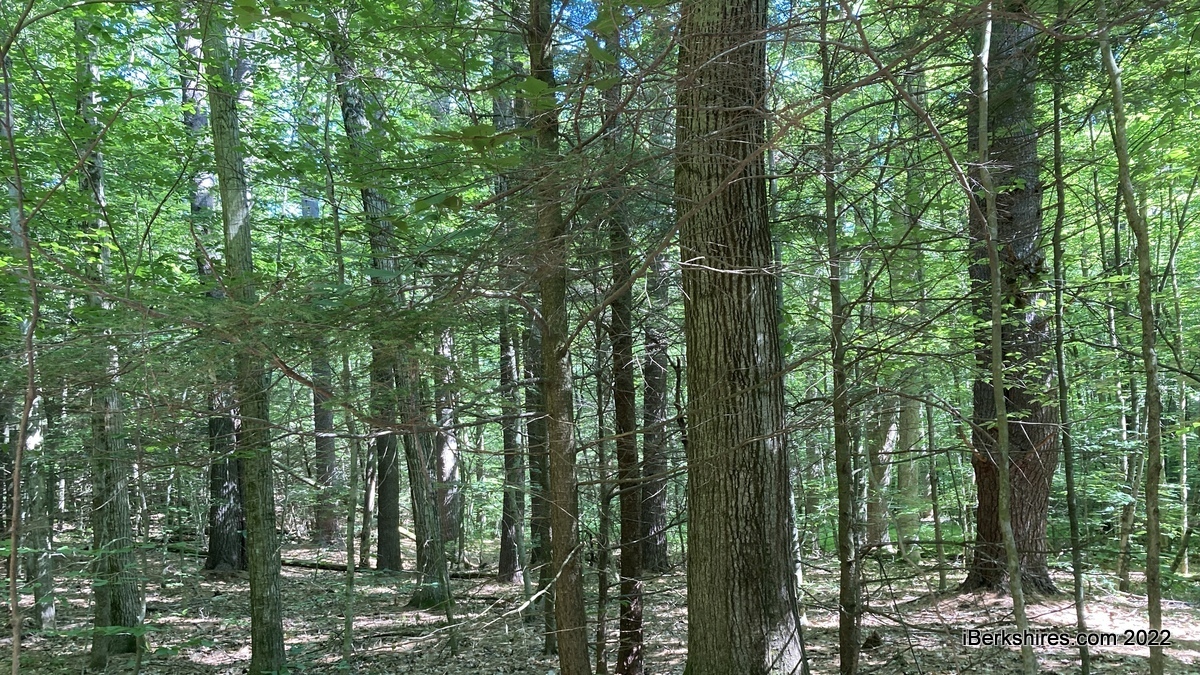
Family Forest Carbon Program Expands to Berkshire County
PITTSFIELD, Mass. — Small forest owners in Berkshire County — and beyond — can now receive annual payments to implement climate-friendly practices on their land.
Earlier this month it was announced that the Family Forest Carbon Program is available to small woodland owners with as little as 30 acres in Berkshire, Franklin, Hampden, Hampshire, and Worcester counties.
The program, developed by the American Forest Foundation and The Nature Conservancy, allows family forest owners to access carbon markets so that they can address climate change while getting paid. This kind of market trades carbon emission allowances in an effort to lower them.
Because trees and plants consume CO2, they are valuable resources for offsetting emissions.
Laura Marx, climate solutions scientist for the conservancy in Massachusetts, said the average parcel size in the state is so small that most family forest landowners have been essentially unable to enter the carbon markets.
"So we have all these landowners who are interested in doing climate-smart forestry, forest management that balances increasing carbon stocks with all the other values of the forest for drinking water production and wood and wildlife habitat and places to hike with your kids and all those things that we depend on it for," she said.
"They haven't always been able to get funding to do that and a lot of these climate-smart forestry practices cost money, either directly like if you're getting seedlings that you're planting into the understory or indirectly just through opportunity cost because you're not kind of taking out the maximum amount of value that you could at one time. So this program allows the small family forest owners to get that combination of that technical assistance from a forester and payments from the market so that they can do that."
Families and individuals own the largest percentage of the nation's forests, 39 percent, and historically carbon markets have only been accessible to landholders of properties 5,000 acres or more.
The landowners with small forest holdings can use climate-friendly practices that were drawn from the Healthy Forests For Our Future guide by the conservancy and the Northern Institute of Applied Climate Science.
They are intended to increase the carbon sequestration on the land.
The guide's recommendations were combined into two options for landowners' participation: Enhance Your Woodland, which supports growing a more robust forest through sustainable harvesting, or Grow Older Forests, which defers harvests.
For both practices, the landowners sign a 20-year contract for payments that are currently around $10 or $15 per acre per year. Payments are front-loaded to fund any upfront costs for implementation.
"One thing that I think is important to note is that the harvest practice, sometimes people think that they will have to cut on like a certain timeline, it allows the landowner and the forester to figure that out," Marx added.
"So they have the option to harvest, they can harvest whenever they want to in those 20 years as long as they're meeting those very careful safeguards, they're not taking off a lot of the carbon stock that's there and they're harvesting in a way that over those 20 years, the forest will end up with more carbon than it started out with. But if something changes midway through or the markets aren't good, the landowner doesn't have to do that harvest."
She said that is a concern that is heard often in the Berkshires.
Stacker.com recently ranked Berkshire County the second most rural county in the state based on compiled Census data. The county is almost 94 percent rural, with 867 square miles of rural land and only 59 square miles of urban land.
The Family Forest Carbon Program has been up and running since 2020 in the Central Appalachian Forest region in Virginia, West Virginia, Maryland, and Pennsylvania. Central and Western Mass, all of Vermont, and the four eastern counties of New York were the second locations to open up to the program.
It will be expanded to parts of Michigan, Minnesota, and Wisconsin next.
"Every time we go into a new area, we really have to understand what type of forestry is happening in that place, what what is the baseline, what are most people doing," Marx explained.
"And then we do that very careful process of figuring out which practices make sense and are carbon positive and we model them out so that we have the best estimate we can have the amount of carbon that they will produce, and that's when they start getting rolled out."
She added that it is vital to have input from foresters and state agencies to get an understanding of what's happening on the ground. This is partly why the program is expanding slowly.
Marx said this program is different from existing carbon programs because it is run by two nonprofits that work with landowners to improve the condition of forests and conserve them. For this program, carbon is a means to an end.
A forest carbon accounting methodology was developed to measure and verify the carbon sequestered and stored by the landowners in the program.
"A lot of the carbon programs out there have gotten a lot of criticism because they haven't really shown that the carbon that is created by the program is real," Marx said. "It's additional carbon that wouldn't be on the land if people weren't doing these types of practices."
She added that the risk is on the program instead of on the landowner or climate.
To learn more about the program, landowners can visit familyforestcarbon.org to see if they meet the requirements for enrollment.
Tags: climate change, forestland, forestry,

